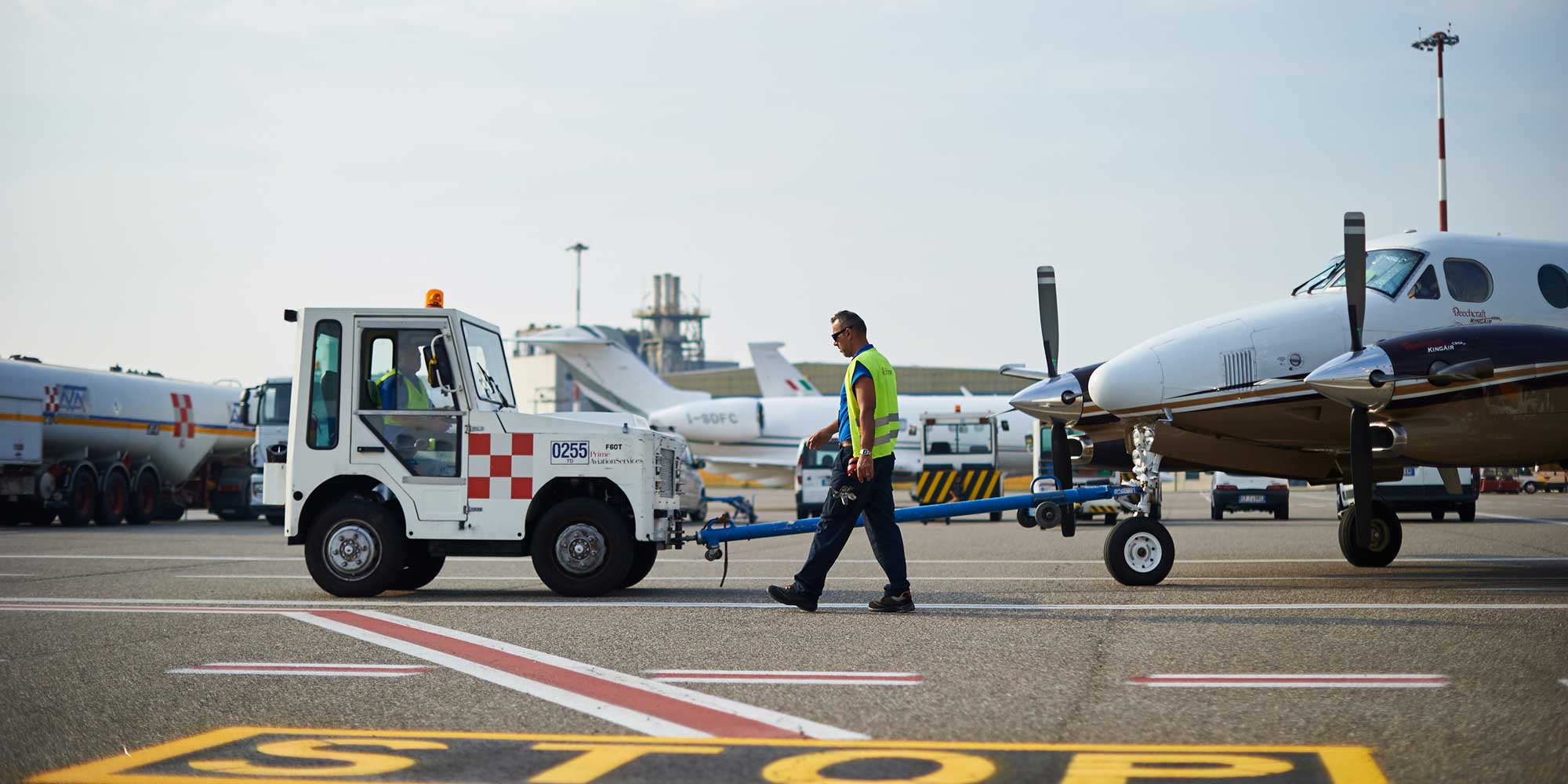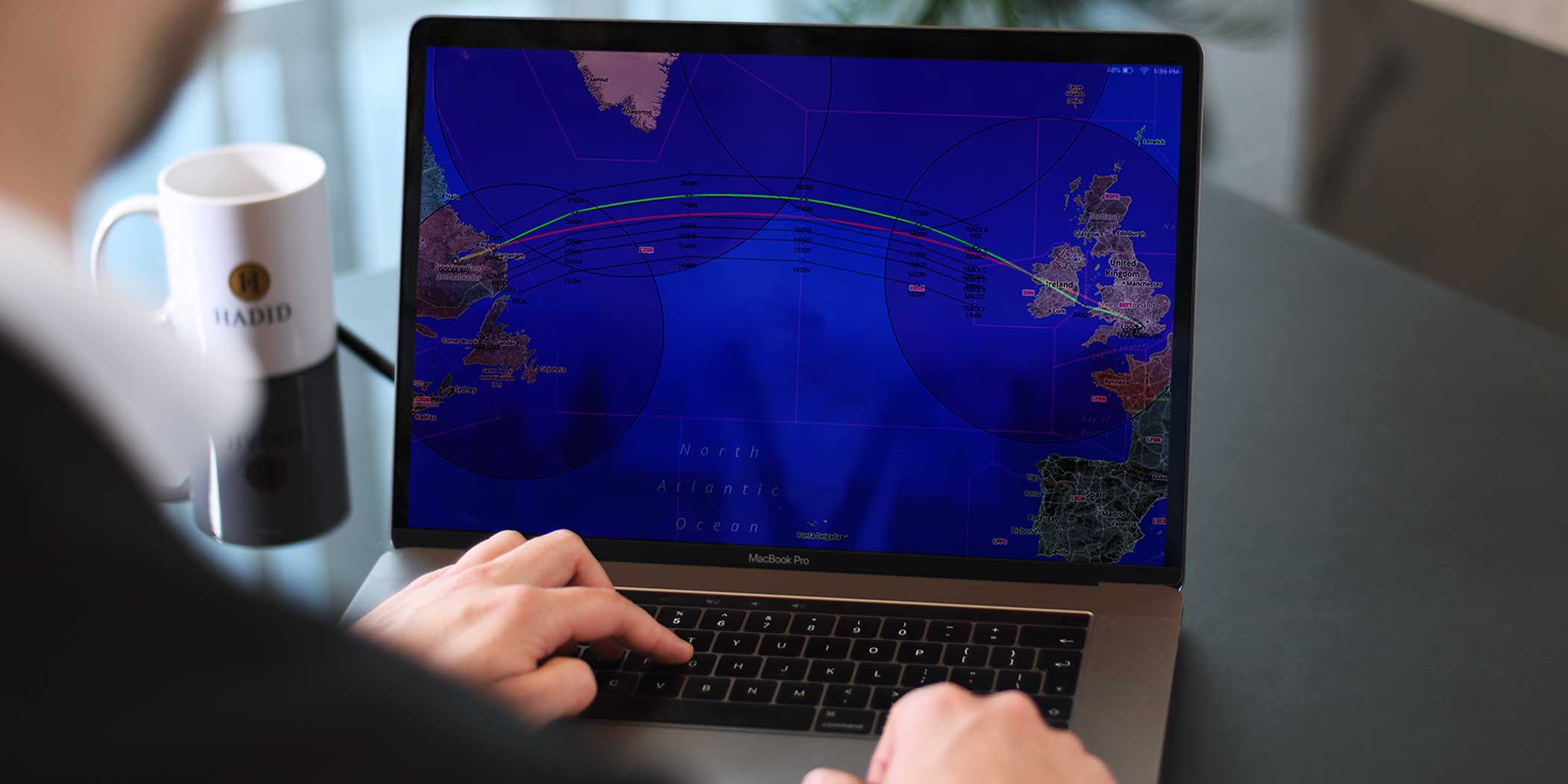Click Here to View This Page on Production Frontend
Click Here to Export Node Content
Click Here to View Printer-Friendly Version (Raw Backend)
Note: front-end display has links to styled print versions.
Content Node ID: 406165
Business aviation has ridden a roller coaster over the past two years because of the pandemic. Yet, according to the industry's international trip support (ITS) segment, business is currently nearing or exceeding pre-Covid levels.
That's quite a turnaround from the start of the pandemic when international travel came to a virtual halt in a matter of days. One global trip support provider noted that its business plunged by 80 percent in just weeks, causing it to institute employee furloughs and other cost-saving measures as offices in many locations became idle.
Yet, as vaccines began to appear and initial infection surges subsided, some countries started to tentatively reopen their borders to travelers, and business aviation came back strong for a variety of reasons. “One is that people who may have gone commercially on some longer flights and not used the corporate jet now don’t want to do that," said Christine Vamvakas, senior charter account manager with Universal Weather and Aviation. "Obviously, they don’t want to be exposed to being on the same airplane with their ‘200 closest friends’ or have to go through the many lines at some airports.” In many cases, greatly reduced airline schedules also made flying commercial less popular.

While security and convenience have always been part of business aviation’s value proposition, “Covid is just another reason to get people on that private aircraft,” explained Joel Logan, Flight Pro International’s director of trip coordination services. He noted that company concerns are now more focused on preventing key employees from being sidelined by the virus. That and the surge in charter and leisure travel have provided the private aviation industry with some record-breaking usage days over the past few months.
Meanwhile, international flight planning has become more complex. “There’s no such thing as an easy trip anymore,” said Henry “Duke” LeDuc, operations director with UAS International Trip Support. “Before, there were just the civil aviation authorities that were involved in the [flight] approval processes. Now you’ve got health authorities involved in all the approvals throughout the world and they all have a different approach to vaccine requirements and quarantine requirements. There’s not a uniform way of approaching this challenge.”
In the early days of the pandemic, it was not uncommon for countries to change their travel requirements literally overnight, and most of the major ITS providers have established internal teams dedicated to monitoring the requirements for each country. It is now more crucial than ever for operators to have a steady stream of information regarding their destination's regulations right up until departure.
Throughout the pandemic, those ever-changing regulations have spurred an increase in aircraft operators seeking trip support assistance. “It’s considerations that we never dealt with before,” noted Vamvakas. “Nobody ever asked about vaccines before...We’re starting to see trends where certain countries will give you a lead time. Uruguay, for example, states that you need to get your vaccination within nine months of arrival.”
“When you fold in the complexities and the amount of correspondence that goes into coordinating these things, these operators are overwhelmed with information, and they’ve got a lot on their plates,” said LeDuc, “so they are requesting more support in different ways than they have in the past, especially in areas like the Caribbean, which typically was a target for D-I-Y [trip planning]. That may not now be necessarily the case.”
One source of confusion is the need to decipher the various testing thresholds demanded by different jurisdictions. “What we’ve found is the far-out places give you a little leeway because they know that it takes a long time to get there, but that’s definitely the big question and that’s like a moving target,” said Logan. “Is it 96 hours? Is it 72 hours? Is it before departure? Is it before arrival? Is it three days? What does three days mean? Isn’t that 72 hours? So, you have all those questions come up.”
Aircraft operators aren't the only people who may feel their heads spinning. Even local authorities can be confused by rapidly changing restrictions. “Some of them were not always up to date,” said Akram Abbas, manager of Hadid International Services’ operation control center. “Some were not always clear or aware how to react in some locations to the changes that are happening, and we witnessed some miscoordination. The good thing is that everybody understands the situation is unusual, so we have not had many complaints from clients.”
“There are locations where in the past you just maybe needed to be vaccinated," Vamvakas said. "Now they want vaccination and a PCR or antigen test, so that change may have come about, but the authorities may not have announced it; they have either just published it internally...or they just made an update and sent a fax to certain operators or certain vendors in the country.” Vamvakis added that this situation provides more incentive to use an ITS with "boots-on-the-ground" intelligence.

“We’ve been classifying countries as closed, at least internally, if they require quarantine,” said Jeffrey Briand, vice president of global trip support with World Fuel Services. “No customer is going to go to a country and sit in quarantine for 10 to 15 days. Others that we consider closed are [those that allow] essential travel only.” He noted that the situation changes as countries relax their restrictions. “I’m starting to see a distinct move toward vaccinated versus unvaccinated, particularly in Europe,” Briand added. “In other words, if you’re vaccinated, you can come in. You still might require a PCR test, but once you get through the airport, you can move around the country.” Lastly, he described "open" countries as those with no vaccination mandate, just a requirement for a PCR test that could be between 36 and 96 hours old upon your arrival, depending on the country.
All those added layers of complexity and research resulting from the regulations have doubled the time it takes staff to perform international trip support requests, according to Louis Smyth, Universal’s senior manager of digital content and communications. All of the ITS providers AIN spoke with for this article stated that the flight planning process now takes longer than it did before the world faced Covid. Authorities in most countries now require longer lead times to process documents, meaning operators should add extra time to their schedules when they submit upcoming missions to their support providers.
That is not the only change the industry has experienced. “We were completely paperless before this pandemic, so the only thing we had to get our head around was working together on Zoom versus standing up and looking over a partition to talk to somebody,” said Briand. “It’s changed the way we do things significantly and with our online tools, [but] I don’t think our customers have seen any difference in service level even as [activity] is picking up.”
On the ground, activity at some popular locations has rebounded so well that post-Covid that customers are reporting delays. “For example, the fuel truck was late because there are so many aircraft on the ground that they can’t get to your aircraft on time, or clearing customs took longer because there were four aircraft in front of you," said Vamvakas. "[As flights increase], you have limitations on parking and the old problems we used to deal with before Covid,” added Logan. “It’s nice in a way to see those challenges come up again because that means... the world is getting back to normal a little bit.”
Another factor passengers need to consider before an international trip, along with understanding a country's entry requirements, is where to obtain Covid testing at the destination, ahead of their return home or another leg on their trip. ITS providers maintain lists of reputable testing locations and their turnaround times.
“We believe the new normal...is that things like vaccination and PCR tests are always required,” explained Abbas. “In addition to your visa and your passport, these are additional things that we always have to look at.”